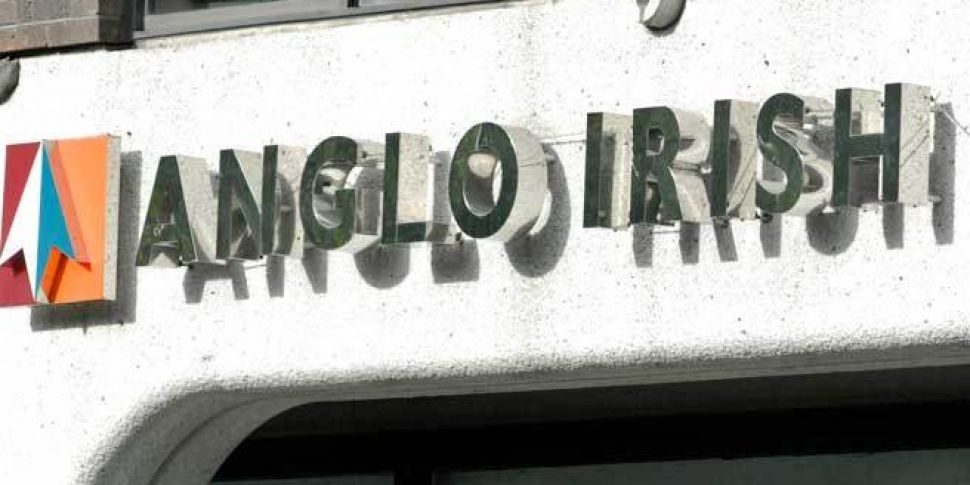A significant portion of the eleven week trial was taken up by sometimes heated argument in the absence of the jury focusing on the issue of legal advice taken by Anglo at the time of the Maple plan.
Evidence of the legal advice was a major feature of the trial until early March when the prosecution won a major victory in having it excluded.
In 2008 Anglo had recruited reputable solicitors Matheson Ormsby Prentice to guide them on the legality of the Maple deal. From the trial’s beginning, it was a defence strategy to use evidence of this advice to show that the accused fulfilled their duties as directors in ensuring the deal was in line with the Companies Act.
Several witnesses testified that the law firm had told Anglo the deal was on the level. When taken alongside the Financial Regulator’s approval, the legal advice formed a convincing case that the men fulfilled their duties as directors.
However the prosecution successfully contended that legal advice does not make an illegal act legal. Its argument was that if a solicitor tells you you are allowed shoot a man, that does not make it any less a crime.
The defence teams responded that this logic placed an impossible burden on the men in their roles as directors. The 1963 Companies Act is 3000 pages long and section 60 alone contains 40 sub clauses. The defence asked how a company director can be compliant with such a vast amount of law without being able to rely on the advice of lawyers.
Judge Nolan sided with the prosecution, ruling that “such a defence would blatantly offend one of the core principles of our criminal justice system, namely ignorance of the law is no defence”.
Judge Nolan’s ruling on the matter led to the strange situation of the jury being told half way through the trial that it must ignore the issue of legal advice despite having already heard extensive evidence on the subject.
After the ruling, witnesses also had to be warned before giving evidence not to mention the subject of legal advice.
'Ignorance of the law is no defence'
The prosecution won another vital victory in having the opinion of the Financial Regulator and the role played by Morgan Stanley discounted as a defence. The jury was told it did not matter that the regulator approved the deal and or that experienced investment bank Morgan Stanley was executing the plan.
Judge Nolan also told the jury that it was no defence for the men to claim they did not know they were committing a crime. “Ignorance of the law is no defence,” was a phrase often repeated during legal argument. Or “ignorantia juris non excusat” as the silks sometimes preferred to put it.
However the judge did take the unusual step of indicating, in the jury’s absence, that he would take the approval of the Financial Regulator as a mitigating factor if the men were convicted.
“I have no doubt the Financial Regulator knew there was going to be substantial lending into this scheme to effect it,” Judge Martin Nolan said during a legal ruling in the absence of the jury.
“I also take the view that the Financial Regulator took no steps to discourage the scheme or in anyway stop it. And it seems from regulator witnesses that they were somewhat relieved when the scheme went through and that the CFD issue was alleviated and regularised.”
The prosecution did not enjoy an unbroken run. The judge sided with the defence in several key areas and directed not guilty verdicts on a series of charges against Mr. FitzPatrick and Mr. Whelan.
Judge Nolan ruled that there was no evidence that Mr. FitzPatrick knew about lending to the Quinn family to buy the Anglo shares. During the former chairman’s five garda interviews, he was never once asked by investigators if he knew of lending to the Quinns.
The judge also ruled that the seven charges that Mr Whelan fraudulently altered the date on loan letters were not supported by the evidence. This essentially came down to how the charges were phrased; Judge Nolan ruled that the evidence was that new loan letters were issued by Anglo as opposed to the original ones being altered.
Prosecuting counsel Úna Ni Raifeartaigh SC was taken by surprise by the rulings and argued that the prosecution should be allowed introduce substitute charges in the case of Mr FitzPatrick. Judge Nolan refused to be swayed.
The State also lost its case to have evidence of Mr FitzPatrick’s salary and shareholding in Anglo put before the jury. Ms Ni Raifeartaigh wanted to show that the former chairman was acting out of his own self-interest in saving the bank
Defence counsel Michael O’Higgins SC accused the prosecution of using “hand grenades”; throwing in explosive evidence at the last minute. Judge Nolan sided with the defence and ruled the evidence was irrelevant.
The trial involved five highly skilled senior counsel and this was reflected in the tactics used on both sides. Both the prosecution and defence employed extensive case law in their arguments, some of it hundreds of years old.
At times the arguments took a surreal turn. Cases involving pirates and French men duelling in England were put before the court. At one point Paul O’Higgins SC for the prosecution cited the 19th century trial of a Tipperary woman who had cooked her child because she thought it was possessed by demons.
At several points there appeared to be tension between Judge Nolan and Michael O’Higgins. Early in the trial Mr O’Higgins made an application that Judge Nolan should recuse himself because the judge had expressed an opinion on the legal advice that counsel felt was prejudicial.
When Mr. O’Higgins continued to raise the legal advice issue throughout the trial Judge Nolan interrupted him, saying “I find it hard to stop you making the same point over and over again.”
“I take exception to the view that I’m making the same point over and over again,” Mr FitzPatrick’s counsel responded.
“I'm not interested in getting involved in a verbal argument because there are very few winners in a verbal argument with you,” the judge said.
Counsel said that the judge was “taking it personal” and “this actually isn’t personal to me.”
Despite these occasional run-ins, most of the trial was conducted smoothly. There was a large amount of agreement on the facts of the case, meaning the trial finished well before the initial outside estimate of six months.
The consensus on the evidence was reflected in the fact that the superintendent in charge of the entire Anglo investigation spent less than 30 minutes in the witness box.
One of more unusual incidents occurred at the end of the trial when Paul O’Higgins used part of his closing speech to ridicule the evidence of prosecution witness and Maple Ten developer Seamus Ross.
Counsel sarcastically suggested that Mr. Ross was not entirely forthcoming in his evidence that he was not focused on the Maple deal in July 2008.
This led to the strange situation of a judge criticising the prosecution for how it treated its own witness. In the absence of the jury, Judge Nolan admonished counsel for his “rude” and “unnecessary” comments which he said Mr. Ross would have to read in the next day’s newspapers.
The judge later told the jury that he thought the Maple Ten were “remarkable men in some ways” and that they were acting to help the bank and the country.









